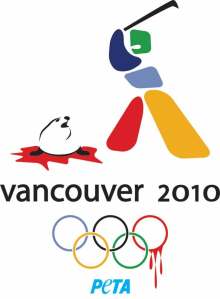Systems Theory: Organizations and their environments are interdependent; therefore public relations professionals must serve as “boundary spanners,” or individuals who facilitate communications with both the organization and its stakeholders. Boundary spanners allow for organizations to adapt to surrounding political, economic and cultural forces.
Systems can be open or closed. Open systems seek public feedback and use boundary spanners to obtain it. Closed systems do not rely on public opinion, but instead operate based on internal forces and history of organizations.
PETA is currently campaigning to end Canadian seal slaughter. The target audience of this campaign is the Vancouver Olympic Organizing Committee. On the PETA website, supporters can write letters urging the committee to take action about the thousands of seals skinned each year. PETA website
(http://getactive.peta.org/campaign/seal_hunt_09)
There is also an online Flickr account with photos of the slaughter and protesters. (Photos)
(http://www.flickr.com/photos/petaflickr/sets/72157614808379436/with/3447853950/)
This campaign has altered the Olympic logo so that the red ring is dripping blood. The Olympian is clubbing a seal. More Info
(http://forum.skyscraperpage.com/showthread.php?t=165398)

The Vancouver Olympics campaign demonstrates situational theory because PETA is communicating with outside organizations to accomplish their goals. Essentially, every person that writes a letter to the committee serves as a boundary spanner because they are facilitating cooperation between PETA and the Olympic committee.
This example is an open system because PETA seeks input from its target audience, and even relies on it to accomplish its goals. It can also be considered an open system because publics can write letters, participate in protests, and comment on the Flickr account.
Public relations counselor Pat Jackson said that the most important effect of the practice is to change behavior. According to our textbook, systems theory suggests that organizations depend on their environments for resources. In this case, PETA is dependent upon the influence of the Olympic committee to change the behaviors of seal slayers in Vancouver.
The information from this example comes from the websites listed above.
Post by Emily Hutto.